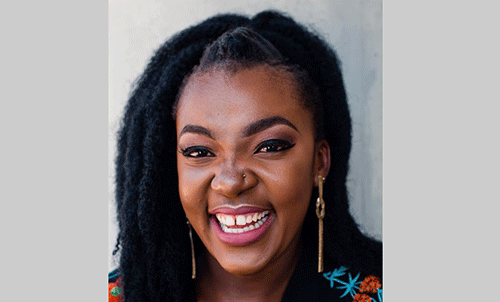I like the way journalism forces change in society, changes human life, and makes things better for people.
I like the fact that journalism keeps changing. I am not the journalist I was in terms of skill and outlook five or 10 years ago; it is an ever-changing job.
Yet, the Namibian media landscape is facing a critical juncture.
From concerns about the quality of journalism to the shrinking advertising revenue that sustains our newsrooms, a complex web of challenges threatens the foundation of our Fourth Estate.
Other challenges include the escalating influence of artificial intelligence in content-creation, the ongoing pressures of adapting to digital transformation, and evolving consumer preferences.
The Covid-19 pandemic shrunk newsrooms, as long-serving journalists were laid off, and some media houses closed down. This means innovations are currently needed in journalism in Namibia because the economic foundation of reporting and the media is increasingly becoming uncertain and competitive.
As a health journalist who has witnessed the power of impactful storytelling, I believe it’s time for serious introspection, and a renewed commitment to the core values that define our profession.
One of the pressing concerns is the perceived decline in the quality of journalism. This isn’t about sensationalism or clickbait; it’s about the depth of research, the accuracy of reporting, and the ability to provide context and analysis that empowers the public.
This deficiency can, in part, be attributed to the lack of adequate training and mentorship for young journalists entering the field.
Journalists need to exercise professionalism, and desist from carelessly disseminating incorrect or distorted information.
Some of these issues have marred the coverage of the 2024 National Assembly and Presidential elections and last week, we have had concerns from readers on the difference in figures reported by media houses about the value of the diamonds stolen from Namdia.
The media is open to scrutiny, and rightfully so. But we can address some of these concerns.
There is a wealth of experienced journalists in our newsrooms – individuals with years of accumulated knowledge and practical wisdom. It is time for them to step into the role of educators and mentors.
Upcoming journalists will benefit immensely from mentorship, which will deepen and sharpen their theoretical and practical grounding on the current debates and issues which centre on the increasingly contested power and role of the media in a more transparent period of digital and social media, which is also witnessing the emergence of ‘fake news’ and the ‘post-truth era of alternative facts’; as well as on policymaking in a discontinuous media-scape.
By sharing their expertise, these experienced professionals can help bridge the gap between academic learning and real-world practice, ensuring a higher standard of journalism across the board.
Beyond structured mentorship programmes, we need a cultural shift within our newsrooms. Journalists must take pride in their work. Beyond simply meeting deadlines, they should strive for excellence in every story.
Rigorously fact-checking, seeking diverse perspectives, and holding ourselves accountable for the accuracy and fairness of our reporting is non-negotiable.
Professionalism should be the hallmark of our interactions – with sources, colleagues and the public.
This dedication to professionalism will rebuild public trust in the media, and ensure our survival. When we offer impactful, high-quality journalism, uncover important truths and engage our communities in meaningful conversations, we create a product worth investing in.
It is a collective responsibility – one that requires the commitment of every journalist, editor and media owner in Namibia. Let us rise to the challenge, and build a stronger future for journalism in our nation.
*Tuyeimo Haidula is a multi-award-winning health journalist and African Union Media Fellow.



